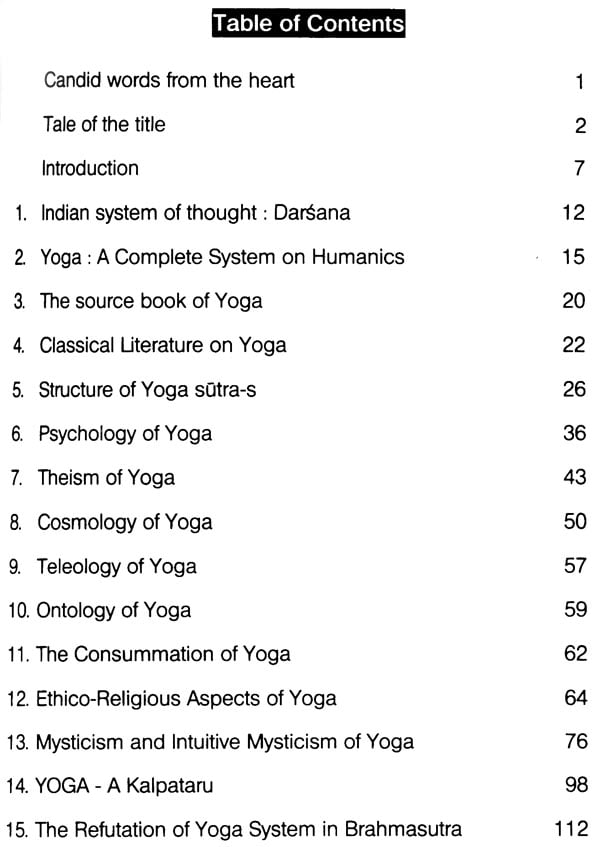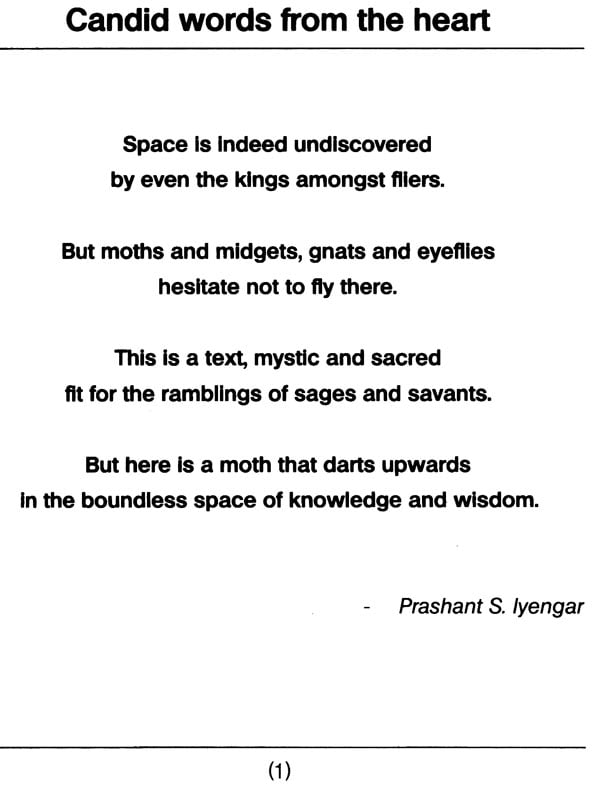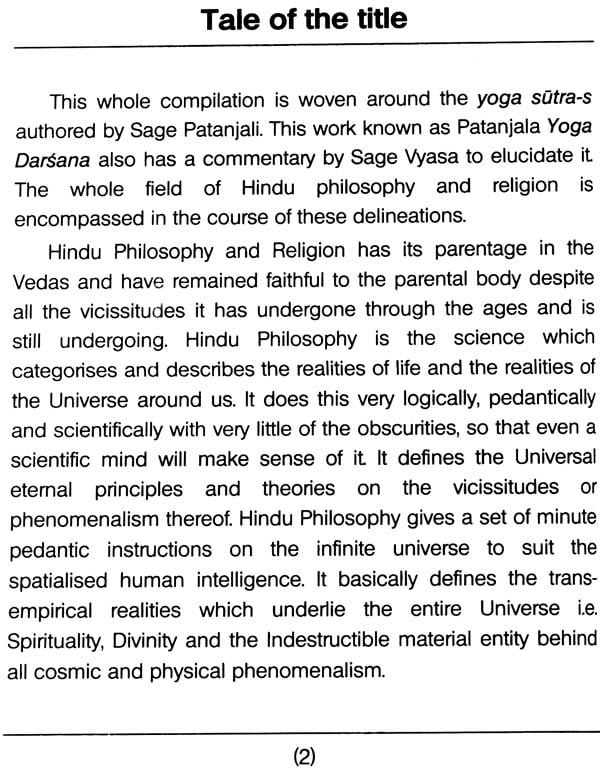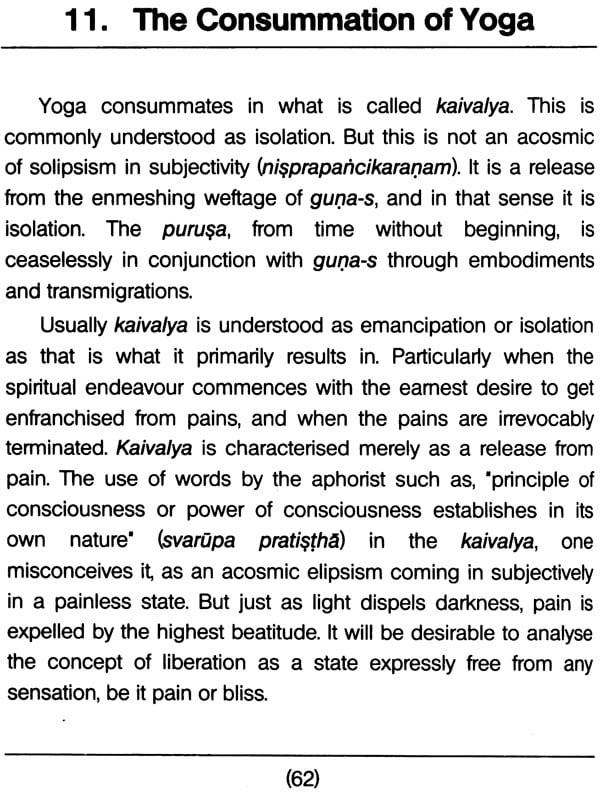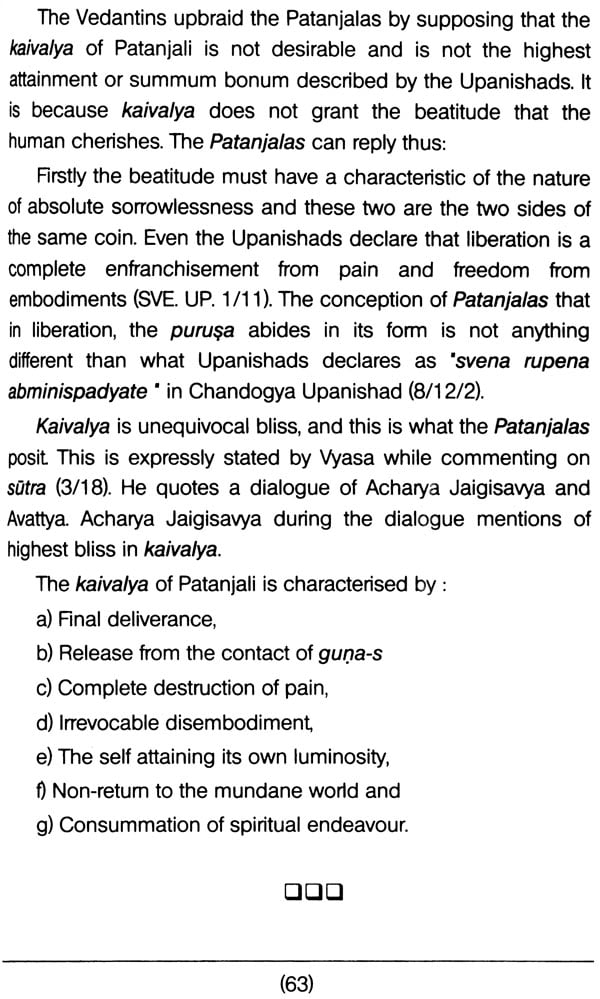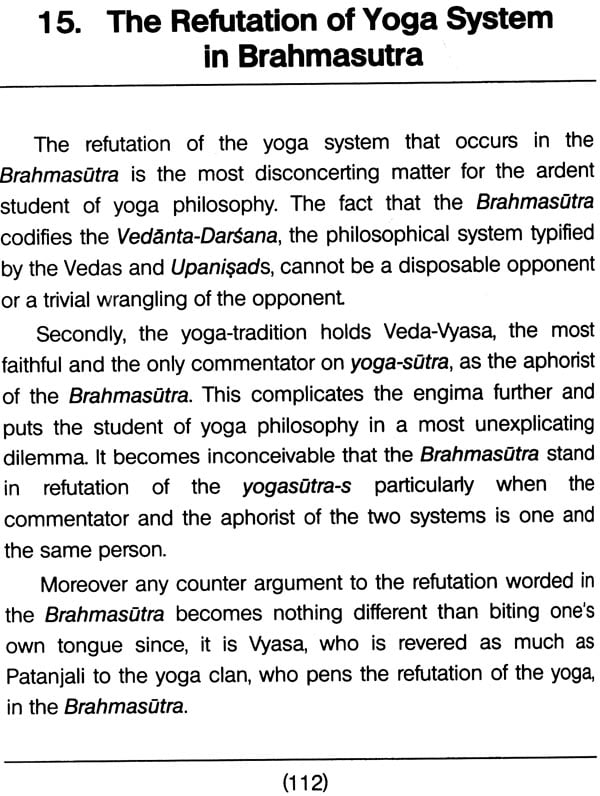
A Manual on Humanics
Book Specification
| Item Code: | NBA012 |
| Author: | Prashant S. Iyengar |
| Publisher: | New Age Books |
| Language: | ENGLISH |
| Edition: | 2016 |
| ISBN: | 9788178224794 |
| Pages: | 119 |
| Cover: | PAPERBACK |
| Other Details | 8.50 X 5.50 inch |
| Weight | 180 gm |
Book Description
This book is a treasure trove of delights for anybody interested in Philosophy. 'Humanics' is the combined aspect of physics, psychophysics, psychics, meta-psychics and meta-physics of human. The art, science and philosophy of yoga that has remedy, reformation and evolution has bequeathed to man of any age and any era.
Yoga is an endless pursuit of knowledge. All emotions that man faces i.e. pain, pleasure, love, hatred, devotion and profanity are on account of mind. The mind is easily vulnerable to emotions and circumstances. Thus, Yoga is development of an internal capacity to help the mind keep restrained from all fanciful, violent and turbulent radiations and establish it in placidity.
Prashant S. Iyengar is the son of Yogacharya BKS Iyengar and an authority on yoga. He is presently the director of Ramamani Iyengar Memorial Yoga Institute (RIMYI). His knowledge about the scriptures and the ancient texts makes learning yoga very interesting. He is also an accomplished violinist.
All emotions that man faces like pain and pleasure, love and hatred, devotion and profanity are on account of the mind. The mind is easily vulnerable to emotions and circumstances. It is volatile and easily provoked to fury, anxiety and excitement Human being is more agonised by the mind than by its foes. The mental complexities grow out of proportion to such an extent that it sometimes results in split personality, and at times even landing one into an irreversible neurotic and hysterical condition. The same mind yearns for knowledge, and in its heart of hearts craves for omniscience!
A needless magnification of anguish, distress, worry, pain, sorrow, and torment victimise humanity by depriving it of placidity. Therefore, one needs to keep the mind in check for the well being of oneself and people around. Some restraint is essential to gain wisdom too. The human mind requires tender care like an infant, because it has the potential to be anything from a saint to a Satan and from wise to foolish. Although the mind is delicate, tender and complex, it can explode with catastrophic effects on the individual, society or humanity, and the bio-world at large.
The human mind has innumerable fancies and fluctuations. Man is tormented by the mercurial mind. It is the mind that makes the man excessively distressed like a naughty and a mischievous child. Man in the modem world is seen increasingly, submissively entreating his mind for peace, quietude and tranquility. Man is seen supplicating the mind for the relinquishment of fanciful imaginings and of unduly magnified worry and anguish.
A sensitive poet is said to have expressed this feeling thus: "Alas! Being burnt up as I am with fires of the world, I take, recourse to the religion of yoga." (y. B. 2/33).
Dissociation from pain depends upon the mind's ability to restrain its undue modulations. It also depends upon its capacity to maintain a 'low-tide' or 'no-tide' in the mind substance. This avoids catastrophic malignancies and fanciful magnifications. The mind needs to be steadfast in placidity unaffected by worldly tossing.
Yoga is development of an internal capacity to help the mind keep restrained from all fanciful, violent and turbulent radiations, and establish it in placidity. This coveted state of all- resistant and pain-proof mind is developed by rendering it into some sort of bad-conductor of psychological anguish and stress current Such fortification could be in a way called yoga.
A commoner cherishes a pain-proof and anguish-resistant state. This is attained through an internal capacity to restrain the mind. Such internal capacities are developed by the practice of yoga principles by adherence to the yoga-cult and by the inculcation of yoga-philosophy. It is at this point that the yoga sutra-s begin declaring; 'Yoga is restraint of mental modifications.'
This system of Patanjali also conjugates seemingly at the same point when the mind is irrevocably restrained in liberation, which is known as kaivalya. In the process, the satre-s encompass the entire human Endeavour towards the summum bonum, which is religious and spiritually highest Now, when there is an effort to restrain all fanciful and violent flights of the mind from within oneself, the same process can be called Yoga.
**Contents and Sample Pages**
